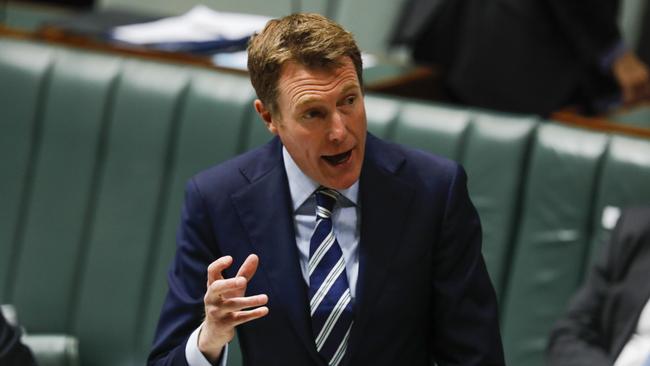Terror crackdown to prevent ‘London Bridge’ style attack
With a notorious terror leader’s release imminent, tough new laws are being enacted in a bid to prevent a “London Bridge” attack occurring on Aussie soil. SEE THE FULL LIST OF MEASURES.
Police & Courts
Don't miss out on the headlines from Police & Courts. Followed categories will be added to My News.
CONVICTED terrorists released from jail will face unprecedented monitoring, including GPS ankle bracelets, random police searches without a warrant and being banned from particularly jobs, training or suburbs, in a bid to prevent a 2019 London Bridge style attack on Aussie soil.
Slamming shut loopholes and toughening existing control orders, proposed new extended supervision orders would give police a wide arsenal of powers in a bid to stop high-risk offenders from undertaking a serious terrorist attack after their jail sentence ends.
ASIO wants some terrorists kept at home, not deported
Grand Terror Auto: Terrorists use video to recruit
There are 12 terrorists currently in jail in Australia who are due for release within the next five years.

When an attempt to extend the jail term of a terrorist fail, control orders already allow police to apply for some powers, like ankle monitors, but they require separate court applications are face more limitations.
The new scheme expands what restrictions and prohibitions police can ask for, and allows a Supreme Court judge to rule on both continued detention orders and supervision orders to reduce the risk of someone slipping through the cracks.
A judge will have the power to include a vast range of restrictions, prohibitions and orders, after a psychological and medical assessment on the convicted terrorist – tailoring it to the individual.
These include restricting domestic or international travel, ban them from certain types of training, like blasting courses, jobs which involve access to firearms like security guards, curfews, stop them from changing names, applying for travel documents, visas and passports.
It could also mean police could stop the terrorist at their home, workplace or car to be searched and tested for drugs or even firearms residue.
Attorney-General Christian Porter said the 2019 London Bridge and 2020 Streatham attacks in the UK showed the “very real threat” that convicted terrorists could still pose after their jail sentence ends.
“With several convicted terrorist offenders due to complete their custodial sentences of imprisonment in the next five years, the need for effective risk management measures to keep our community safe is greater than ever,” he said.

The proposed laws also lower the bar from when restrictions apply, from “high probably” to “on balance of probabilities” they will reoffend.
They will last for three years, with an annual review, instead of having to reapply every 12 months.
Melbourne terrorist Abdul Nacer Benbrika, who was sentenced in 2009 for heading a terrorist cell plotting numerous attacks which were headed off, is due for release at the end of this year.
On November 29, 2019, Usman Khan stabbed five people, killing two, at London Bridge after having been released from jail the previous year where he served time for terrorist offence.

